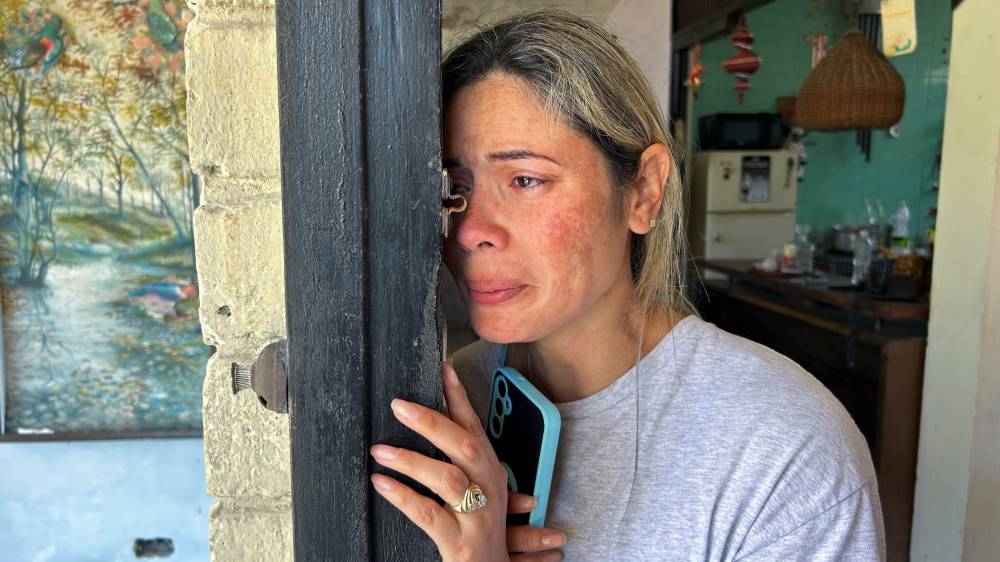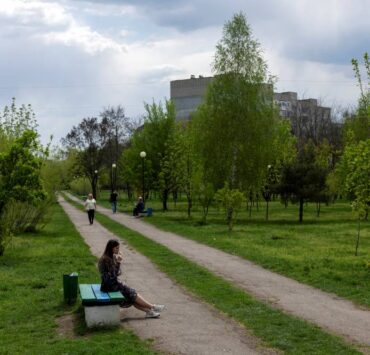Cuban mother’s case fuels concerns over children caught in Trump deportation push

HAVANA — US immigration officials’ deportation of a woman to Cuba last week, separating her from her 1-year-old daughter, has drawn fresh attention to what critics say is the Trump administration’s willingness to split up families as part of its migration crackdown.
Heidy Sanchez, interviewed by Reuters on Monday, said she was told she would be deported and separated from her still-breastfeeding daughter, a US citizen.
Her account is disputed by the US Department of Homeland Security, which contends that parents are given a choice of taking their child with them and that Sanchez had elected to leave her daughter with a relative.
Democrats and immigrant advocates have argued that due process rights of immigrants are being violated during the deportation drive of US President Donald Trump — and that young children are being caught up in it.
Last week, a Trump-appointed US judge in Louisiana said a 2-year-old US citizen was deported with her mother and sister to Honduras “with no meaningful process.” In a similar case in Louisiana last week, two US citizen children — including one with a rare form of cancer — were also deported to Honduras with their mother, advocates said.
In the case of Sanchez, she told Reuters she was surprised at a routine check-in at an Immigration and Customs Enforcement office in Tampa last Thursday, and that she was given no choice but to leave behind her daughter.
‘Unconscionable’
“They told me to call my husband, that our daughter had to stay and that I would go,” she said in an interview at a family member’s home near the Cuban capital, Havana. “My daughter got nervous and agitated and began to ask for milk, but it didn’t matter to them.”
The Department of Homeland Security told Reuters that Sanchez’s statement was inaccurate and contradicted standard ICE protocol.
“Parents are asked if they want to be removed with their children or ICE will place the children with someone the parent designates,” Assistant Secretary Tricia McLaughlin said in an emailed response late on Monday.
“In this case, the parent stated they wanted to be removed without the child and left the child in the care of a safe relative in the United States.”
DHS did not immediately respond to a Reuters request for evidence that Sanchez had been offered the choice to take her child with her.
Sanchez said she arrived in her home country hours after being detained, with no passport or identification and no documentation from the United States explaining the reason for her deportation.
Democratic U.S. Representative Kathy Castor called the treatment of the Sanchez family “unconscionable and wrong” and urged Trump on Monday to reunite the family in Florida.
Due process concerns
Trump has vowed to deport millions of immigrants in the US illegally, an aggressive campaign that has created challenging situations for so-called “mixed-status families” where children or other family members have US citizenship or legal status while others do not.
Sirine Shebaya, executive director of the National Immigration Project, said the two Honduran mothers were taken into custody during routine check-ins and that they were never given the choice to leave their children with a caregiver in the US.
Chuck Schumer, the top Democrat in the US Senate, called the children’s deportations “sickening” and “immoral” in a speech on the Senate floor on Monday, saying the rule of law was “under attack.”
In a response to Reuters, McLaughlin said ICE did not deport US citizen children and that “their mother made the determination to take her children with her back to Honduras.”
Trump border czar Tom Homan on Monday blamed parents for putting their children at risk of deportation by remaining in the United States.
“If you choose to have a US-citizen child, knowing you’re in this country illegally, you put yourself in that position,” he said.
Sanchez, 44, had been under deportation orders since 2019 but was allowed to temporarily live and work in the United States as long as she regularly checked in with ICE.
During that time, she married a Cuban-born naturalized US citizen and had her first child in November 2023.
Her husband sought legal residence in the US for Sanchez two years ago as a result of their marriage, but had yet to receive a response, she said.
Policy change
Sanchez said officials separated her from her child at the check-in, escorted her to a van, handcuffed her and later that day deported her by air to Cuba alongside 81 others.
“I can’t sleep, I can’t rest,” a tearful Sanchez said. “All I ask is that they reunite me again with my daughter.”
The cases highlight a sharp break in policy between the Trump and Biden administrations.
Under Democratic President Joe Biden, ICE officials were instructed to consider the impact of enforcement action on families.
Trump rescinded that guidance, broadening the scope of enforcement and targeting migrants like Sanchez with standing deportation orders.
Sanchez, who said she had no criminal record, is now just a few hundred miles from her daughter in Florida but a world apart.
Worsening shortages of food, fuel and medicine on the communist-run island, just 145 km off Key West, have made life unbearable for many Cubans.
The crisis has spurred a record-breaking exodus from the island of over 1 million people, a predicament Cuba blames on US sanctions that contribute to strangling an already inefficient state-run economy.
Sanchez said she now faced the “impossible” decision to remain apart from her infant daughter or reunite with her family in crisis-racked Cuba.
“Everybody knows the situation here,” she said.
Reuters, the news and media division of Thomson Reuters, is the world’s largest multimedia news provider, reaching billions of people worldwide every day. Reuters provides business, financial, national and international news to professionals via desktop terminals, the world's media organizations, industry events and directly to consumers.

















